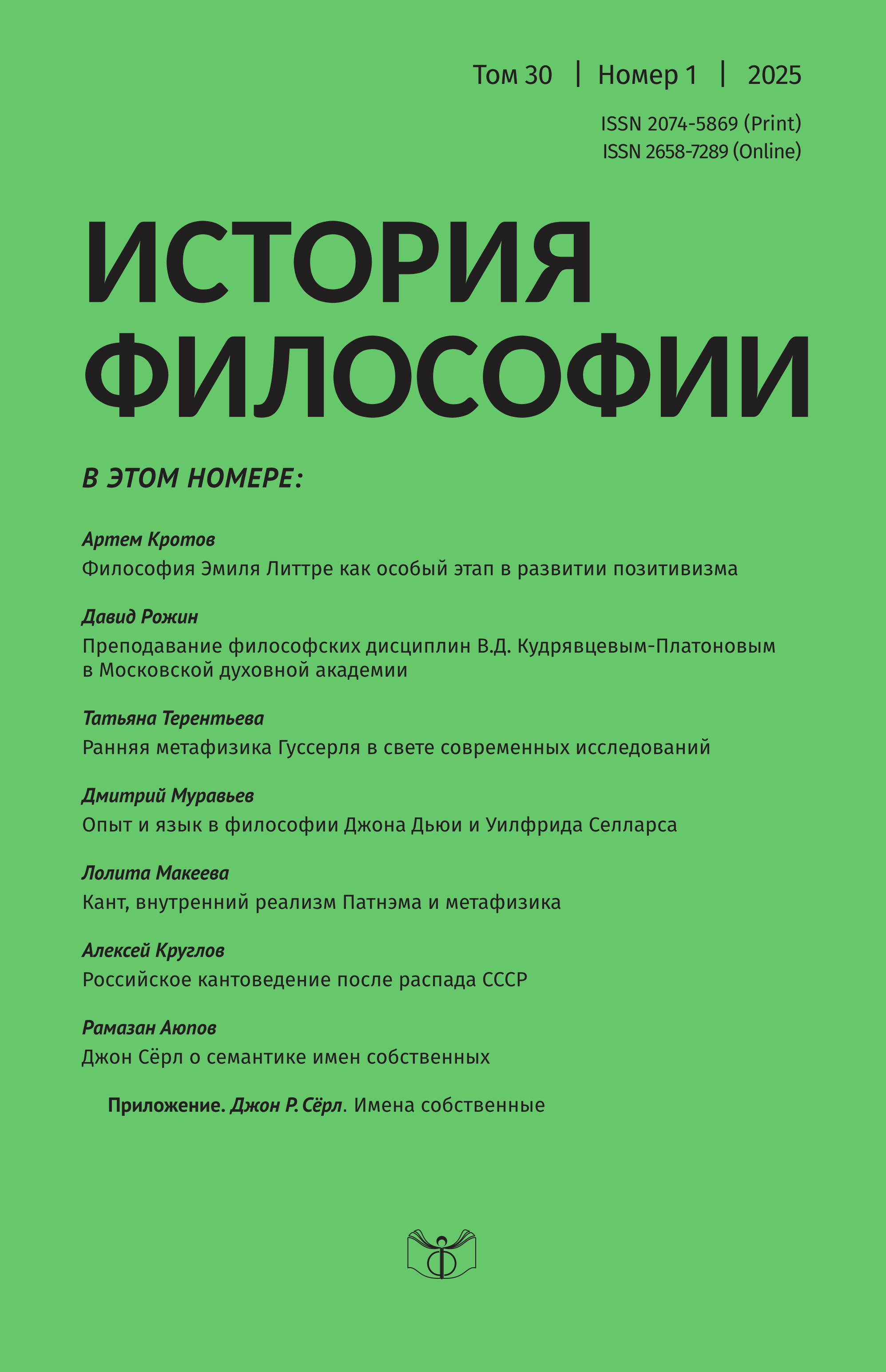Russian Kantian Studies after the Collapse of the USSR
DOI:
https://doi.org/10.21146/2074-5869-2025-30-1-85-100Keywords:
I. Kant, Russian Kant Studies, classical German philosophy, Wirkungsgeschichte, QuellengeschichteAbstract
After the collapse of the Soviet Union, Russian Kant studies retained the best aspects of the preceding period while undergoing a series of methodological and thematic transformations and innovations. The term “German classical philosophy” was abandoned, and Kant was no longer regarded as a mere “precursor” to G.W.F. Hegel and Karl Marx. Instead, emphasis was placed on the intrinsic significance of Kantian philosophy. In contrast to the Soviet period, the research interest of Russian Kant studies shifted from studying the problems of Kant’s “dialectic” and criticism of his agnosticism and idealism to Kant’s embeddedness in the intellectual tradition of the German Enlightenment and studies the reception of Kant in Russian philosophy, literature and culture.

